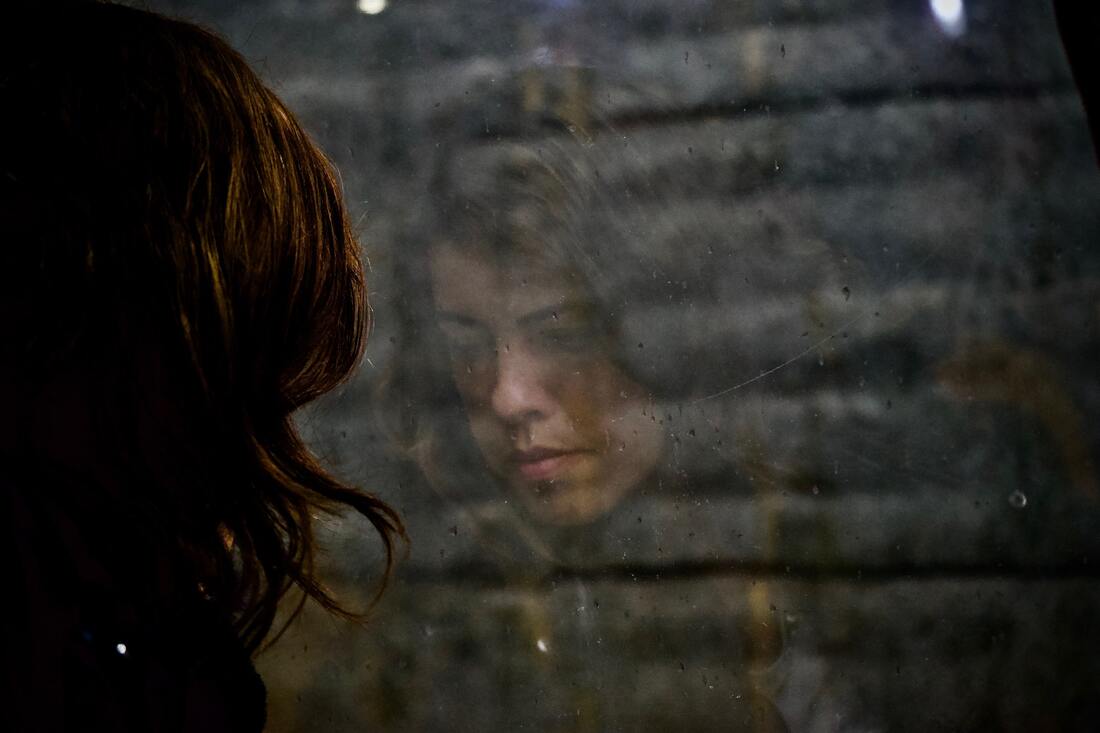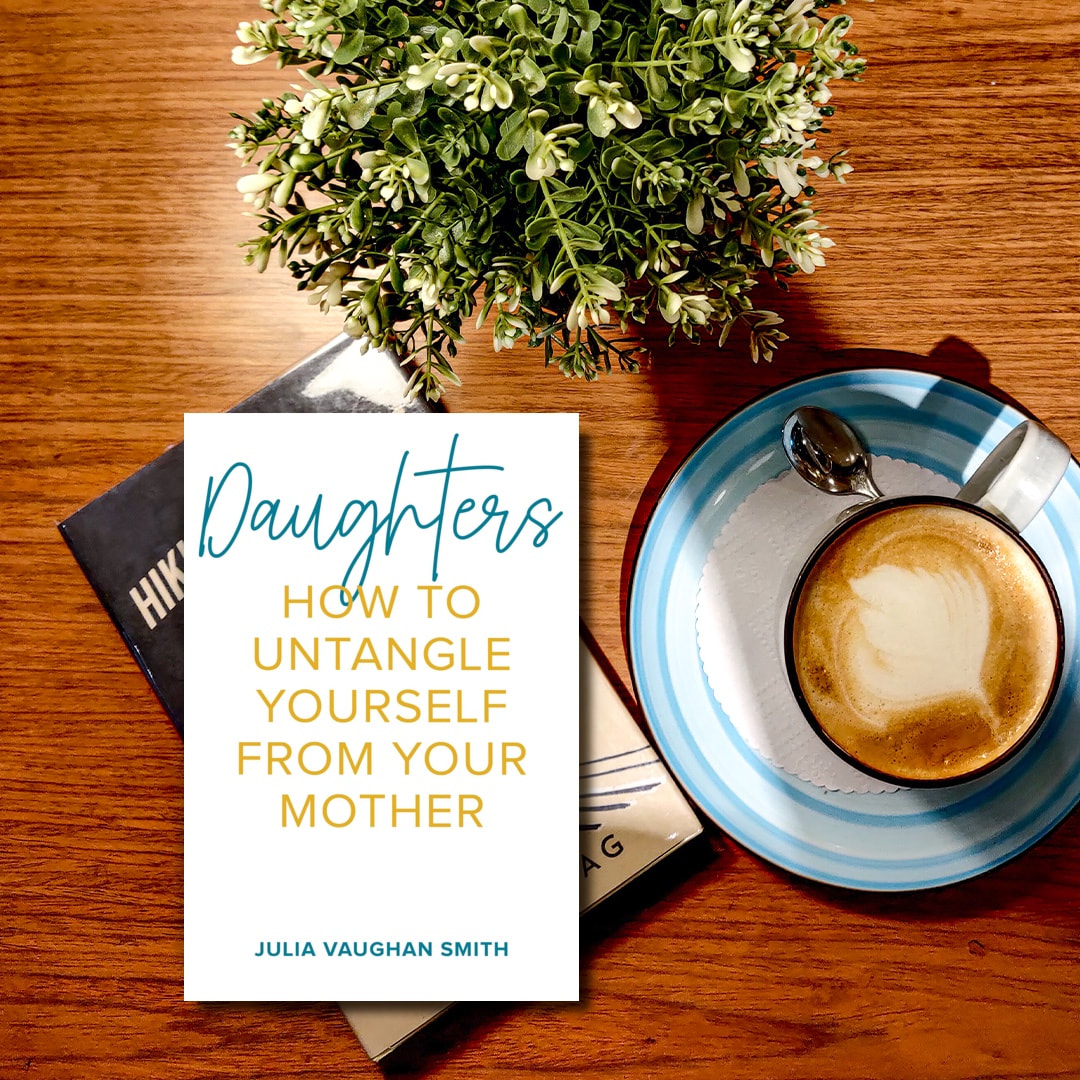|
Many adult daughters who do things for their mothers end up feeling resentful if they receive no thanks or acknowledgement. It’s not just daughters of course, mothers can feel resentful if their daughters take rather than give in the relationship. Resentment can build up in any relationship. Resentment can eat away at us, fuelling anger and distancing. In this book ‘The Body Says No’ Gabor Maté, a Hungarian-Canadian physician, calls resentment ‘soul suicide’. The problem is in some ways we bring it on ourselves. If we continue to give (time, energy, commitment) in the hope that it will bring recognition and maybe love we are caught in an entanglement. If we choose to give to our mother, or another, then we need to do so freely or not at all. Here’s a made up example – Prue’s mother requires quite a lot of attention from her daughter, not because she is ill or disabled but she wants attention. She is not very focused on her daughter or her daughter’s life. Prue tries to be a ‘good daughter’, to respond to her mother’s requests, to maybe sort out her paperwork, and to ‘think’ for her mother trying to anticipate what might be needed or wanted. Prue has never felt ‘seen’ by her mother and carries this deep hope that one day, if she does enough, her mother will turn to her, see her for herself, and say she loves her. It never happens, so Prue keeps going giving her time and energy, being dutiful, while the resentment builds up and up. She complains a lot about her mother to her friends and hasn’t yet looked at her part in this ‘game’. If she examines her motivation she may find the drivers for this entanglement. Can she bear to break it? Can she bear to set boundaries, to say no, or to limit her contact? Can she bear to break the cycle? She can if she finds it within to honour and respect herself, to step back and look afresh. To decide for herself, what is she willing to do and how does she need to reframe it in order not to feel this toxic build up of resentment. The other thing she has to face is that her mother is highly unlikely to change, if she could be different, she probably would have been by now. She will probably find, in her self-enquiry, that she carries a hope that her mother will change. Best to face the reality that she probably won’t and to plan for that. Good loving relationships comprise equal amounts of give and take, that is, we give to each other and are able to take care and actions that support us from others. Poor relationships are where there is more giving on our behalf than what can be received. We get little support, encouragement or endorsement in return. Sometimes, we are given these things but we block them out, we deny them or they are things we don’t really want and would rather have something else given to us. Healthy relationships can explore that in ways that are not about blame or victimisation, but a clear discussion about what we need. It is useful to remember to create a ‘circuit break’ between stimulus and response. That is between an impulse to react and what we actually do. We can be helped in this by metaphorically stepping back, taking some deep breaths and allowing ourselves to be with the situation. We can engage with the question of ‘what response might I make that will not leave me with resentment?’ This might be linked with an intention not to make the situation worse or to look after our wellbeing by not stepping into toxic resentment. This might give rise to some fresh thinking about what would be the best response, including maybe not responding. In some relationships with mothers, especially when they are ageing and/or vulnerable we may be wish to take on the role of care-giver in some way. We may decide to give our time and energy to making her life as comfortable as possible, without stepping into heroic rescuer, recognising what is in our gift and what isn’t. This needs a deep reality check. We need to make this decision knowingly, weighing up the consequences for us and the potential contributions we can make. We can enrol others to also contribute if they choose. If we can make a clear choice, we have to be prepared to reframe our thoughts so we give the time and energy we have decided to give, without expectation of reward, recognition or thanks. If thanks comes, great, but if it doesn’t we have still given freely of entangled hopes and wishes. In an entanglement it can feel as if we have no choice at all, that the situation is a given as if programmed in from birth. We always have choices and we can take responsibility for the choices we make so that we are not inviting toxic resentment into our lives. Forgiveness can help too, forgiving ourselves for possibly having not done that in the past; we can recognise that our actions came from a place of caring or concern. Engaging our capacity for self- compassion and compassion for our mother may also help. From that position we can engage empathetically with her humanness, and how she may be experiencing that, while not getting caught up in the hurt that maybe her values or opinions are different from ours. It takes work to build up the emotional muscles that enable us to step back, reconsider, decide and act on our decisions, and to let go of the hoped for longing to be seen and feel loved by her. If we are willing to commit to this, it will help free us from the suffering of entanglement. Julia Vaughan Smith March 2023
0 Comments
I first wrote about this in October 2020 after I had completed my research and planning for Daughters: How to Untangle Yourself from Your Mother. What struck me at the time was the guilt some daughters feel talking about their mothers’ failures in mothering; they often qualified what they said with something that excuses the mothers’ behaviour. More recently, this ‘commandment’, Thou Shalt Not Betray Thy Mother, appeared again, this time within me. As I get near to publishing the book I can be overtaken by anxiety that I am betraying my mother for even suggesting that our relationship was difficult at times for me. One of my motivations for writing the book was to give voice to all the daughters who have suffered to a greater or lesser degree from the way their mother related to them, from conception onwards. Many things affect how mothers relate to their daughters, including their own psychology and childhood experience, the circumstances at the time of pregnancy and afterwards, the support around them, life circumstances, as well as the behaviour of the infant and how well that could be tolerated. A number of daughters have suffered greatly from abusive, neglectful, critical or narcissistic mothers, and have largely kept silent outside, perhaps of a therapy room. Some mothers weren’t able to protect their daughters from physical or sexual abuse, and some refused to believe stories of sexual abuse so daughters kept quiet out of fear of not being believed – and in some cases to protect their mother and the family. It's not that there is nothing to say. It’s that the commandment endorsed by society keeps daughters silent. Within this I think there are a at least four reasons some of which I referred to in the blog of October 2020:-
Throughout this book I have been determined not to blame mothers; and indeed, see blaming as part of the unhealthy entanglement. Mothers are daughters, with their own childhood history and stresses in adult life. There are few places where mothers can talk about any negative mothering experiences for fear of being shamed. Some act out of their stress and emotional trauma in their behaviour towards their children. The response of our neuro-physiology in responding to a sense of danger doesn’t concern itself with the motivation of the mother’s action. Many mothers have a motivation to ‘be a good mother’, I doubt any set out to fail their daughters (or sons). However, if through their own psychological development they are unable to feel a strong loving connection with their child their behaviour may at time have been rejecting, hurtful and frightening. A pattern of leaving an infant hungry for too long, or crying alone for too long, produces a fear response in the infant and a lack of trust in the carer. Each generation has its own ‘mothering/parenting guru’ or instructions/expectations. Mothers who want to be good mothers, and who don’t trust themselves to do that naturally, may take on those instructions even where they may not really be in the best interests of the child. In my childhood, it was 4 hour feeding, whether the infant was hungry or not, and no matter how much the infant might have been crying due to hunger. Fashions have changed but the challenge for mothers continues. Is it possible to bring understanding and compassion for mothers and be able to talk of our own experience without feeling we are betraying them? I’d like to encourage us to try. It may be in how we talk about the relationship, and the extent to which we are owning our own part of it as an adult. There may also be some things that we should be mindful of sharing widely out of respect rather than because we feel we mustn’t. We may need to examine the narratives we use more deeply as it is easy to get into a story pattern which leaves out some elements. At the same time, we need to feel able to talk about our own experience and the impact on us, without feeling we are betraying another. Protecting those that hurt us makes sense when we are children, as we have nowhere else to go, but as adults we can come to this with a different mindset. Julia Vaughan Smith March 2023 |
Julia's BlogArchives
May 2023
Categories
All
Access Octomono Masonry Settings
|
Becoming Ourselves | Julia Vaughan Smith
© Julia Vaughan Smith 2017-2023 All rights reserved | Privacy Practices | Coaching & Trauma website
Website design by Bright Blue C Design Studio | Photo credits
Website design by Bright Blue C Design Studio | Photo credits


 RSS Feed
RSS Feed